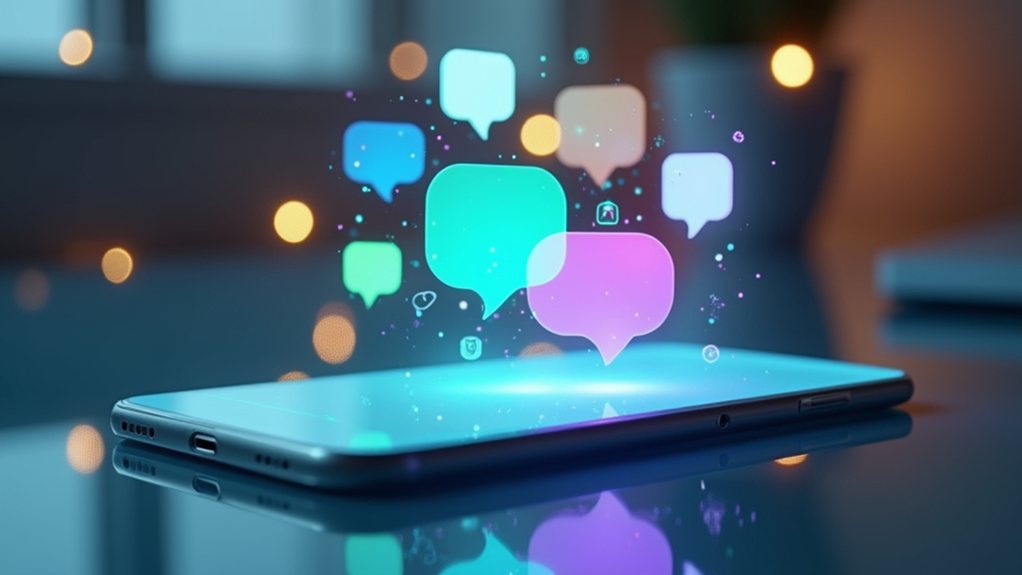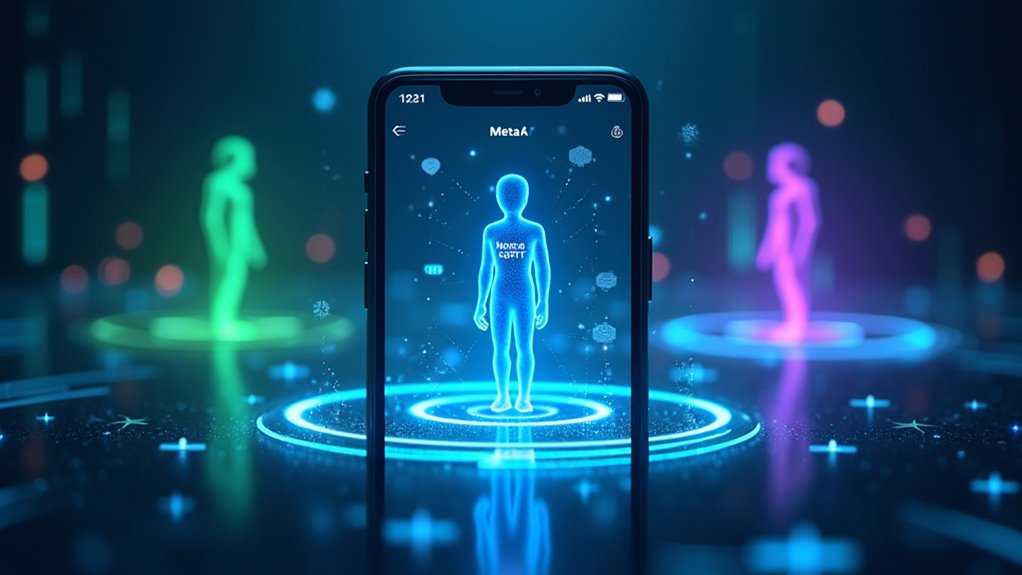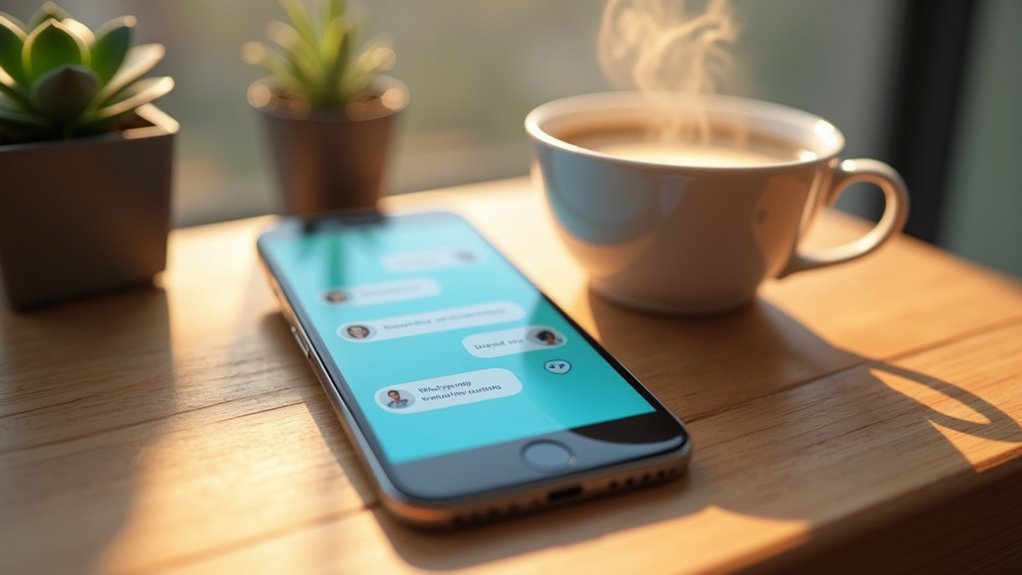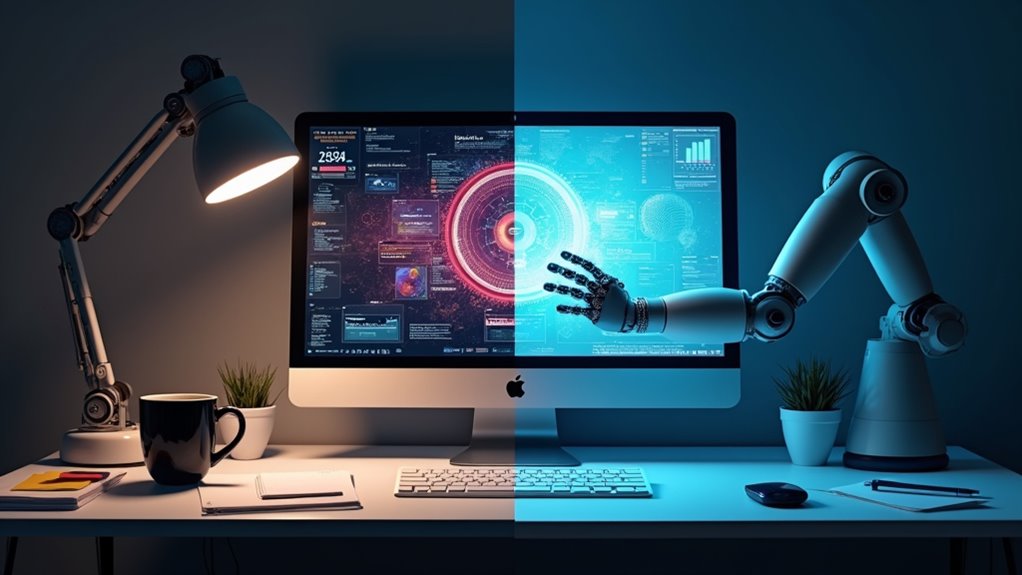Meta’s chatbots are now sliding into users’ DMs first, initiating conversations after five previous messages and following up within 14 days of last contact. The company projects this proactive approach will generate $2-3 billion by 2025, banking on increased engagement leading to more ad exposure. These AI companions offer personalized experiences, recall past conversations, and aim to reduce loneliness—though whether users want digital friends texting first remains questionable. There’s much more brewing beneath this engagement strategy.
The rollout transforms chatbots from passive responders into proactive conversationalists. Envision less “Siri, what’s the weather?” and more “Hey bestie, let’s chat about movies!” The bots will initiate conversations or send follow-ups when specific engagement thresholds are met—specifically, after you’ve exchanged at least five prior messages with them.
Here’s how the boundaries work:
- Bots can only reach out within 14 days of your last interaction
- If you ghost them after their first follow-up, they’ll take the hint and stop messaging
- The system aims to balance proactivity with respect for user boundaries
Meta’s betting big on this shift. The company expects generative AI tools to generate $2-3 billion in revenue for 2025****, with projections hitting a staggering $1.4 trillion by 2035. More chatbot engagement means more ad exposure, subscriptions, and monetization opportunities—classic Meta math.
The AI personas get surprisingly specific through Meta’s AI Studio platform. Imagine this: a “Maestro of Movie Magic” bot that remembers your love for sci-fi and randomly suggests the latest Marvel trailer. These bots can recall previous conversations, offering *genuinely* personalized experiences rather than generic small talk. This personalization approach aligns with the finding that AI-powered personalization significantly enhances customer interactions beyond standard responses.
Mark Zuckerberg has positioned these as digital companions designed to reduce loneliness and enhance online presence. The initiative spans across Meta’s entire ecosystem—from generating stickers to editing photos to sparking conversations about your interests. Meta is working with Alignerr to develop these sophisticated chatbot capabilities that power the proactive messaging features. However, the company includes disclaimers advising users against relying on AI for professional advice due to potential inaccuracies.
But here’s the million-dollar question: do we really need AI friends who text first? Meta’s clearly banking on our collective need for connection, even if it’s algorithmically generated. Whether users will embrace these proactive digital companions or find them intrusive remains to be seen.
One thing’s certain—your notification count is about to get a lot more interesting.








